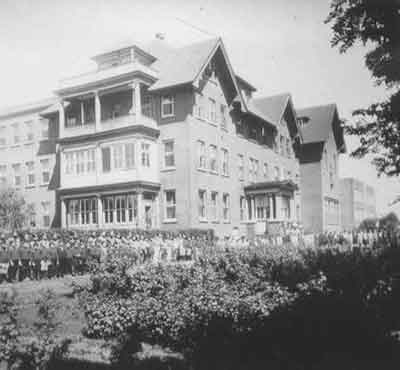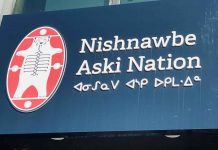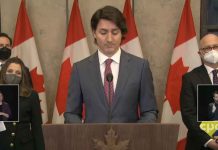Tḱemlúps te Secwépemc – This statement is in follow up Tḱemlúps te Secwépemc leadership and grassroots family representatives discussions regarding the public apology made by the Prime Minister of Canada on October 6, 2021, as well as the call between Tḱemlúps te Secwépemc Kukpi7 Rosanne Casimir and Prime Minister Justin Trudeau that took place on October 2, 2021.
No words can express the level of grief and sorrow that the confirmation of unmarked graves of missing children from the Kamloops Indian Residential School (KIRS) and other residential schools have brought to Indigenous People across the country. We need to work collectively to give Le Estcwéý (the missing) the dignity they never had. As part of our healing journey, we planned an event to honour the first National Day for Truth and Reconciliation. Two letters of invitation were sent to the Prime Minister’s office to participate in our event. His presence would have exhibited to the world his personal commitment to enacting real change and rectifying the historical wrongs of the residential school system and to personally support grieving Indian Residential School Survivors. His attendance would have been an acknowledgement to all Survivors, their families, and communities – a clear public gesture would have brought peace to many.
Regrettably, those letters were not responded to, nor was the offer to provide us a filmed speech that could have been aired on September 30th. That was an unfortunate decision and a missed opportunity for Prime Minister Justin Trudeau to show Canadians his commitment to Indian Residential School Survivors and Le Estcwéý (the missing). The lack of response to our invitations was an added insult, as he never extended his personal hand of sympathy to our community once he heard the official announcement on May 27, 2021.
The Canadian government was the entity who created the residential school institution, and it is now the Canadian government’s leadership that is needed to work with Indigenous Peoples to find a path of truth telling and reconciliation. With the acknowledgement of our truths, comes responsibility – both for the caretaker communities and the Canadian government.
Reconciliation starts with action. Real action and change is needed that supports healing, the revitalization of our language, culture, traditions, and ways of knowing. We are not interested in apologies that don’t lead to institutional and widespread change.
For Tḱemlúps te Secwépemc, we require funding for a Tḱemlúps healing centre to support Survivors and intergenerational Survivors. This would benefit Tḱemlúps te Secwépemc, the Secwepemc communities as well as all those that want to participate in the healing programs. With the findings at the KIRS, survivors have been triggered and are overwhelmed with sadness, grief, and anger. Even those who have made great progress on their healing journey have suffered a setback. Before the Truth and Reconciliation (TRC) process there were several residential school healing programs available in BC and in Canada funded by the Aboriginal Healing Foundation. These were ironically defunded at the start of the TRC process.
An Indigenous healing centre in Kamloops would address this mental health crisis, offer healing programs for survivors, intergenerational trauma healing, family healing and grief and loss healing amongst other types of programs. We would like a commitment by the Canadian government for funding for a Tḱemlúps healing centre so that tangible progress towards meaningful reconciliation can happen.
Tḱemlúps te Secwépemc seeks the Canadian government’s continued support to ensure that the full and complete disclosure of the records held by the Canadian government – specifically, the Student Attendance Records that were created by the institutions that administered Kamloops Indian Residential School. Those primary documents, currently within the custody of the Canadian government, will be of critical importance to identify those lost children. Every student who ever attended Kamloops Indian Residential School is documented in those records. Thus, we call upon Prime Minister Trudeau and the Canadian government to share those attendance records as a first step in assisting Tk’emlúps te Secwépemc fulfilling their obligations regarding those lost without acknowledgement and so that the families of Le Estcwéý can get the resolution and peace that they deserve.
Tḱemlúps te Secwépemc asks that the Prime Minister come prepared to discuss how the Canadian government can assist us in funding these key projects as a gesture towards meaningful recognition and reconciliation for Indian Residential School Survivors.
Tḱemlúps te Secwépemc continues to call upon Prime Minister Justin Trudeau to witness and recognize our collective history and be part of the solution by visiting Tḱemlúps, meeting with Survivors, and hearing them speak their truths about Indian Residential Schools. The focus of this visit needs to be on the real issues of reconciliation not a media event to compensate for his lack of participation on the National Day for Truth and Reconciliation.
Tḱemlúps te Secwépemc has chosen a date from the ones that his office offered, for a visit with the Prime Minister of Canada and look forward to welcoming him to Secwepemcúlecw later this month.
No further comment or interviews will be made at this time by Tḱemlúps te Secwépemc.






